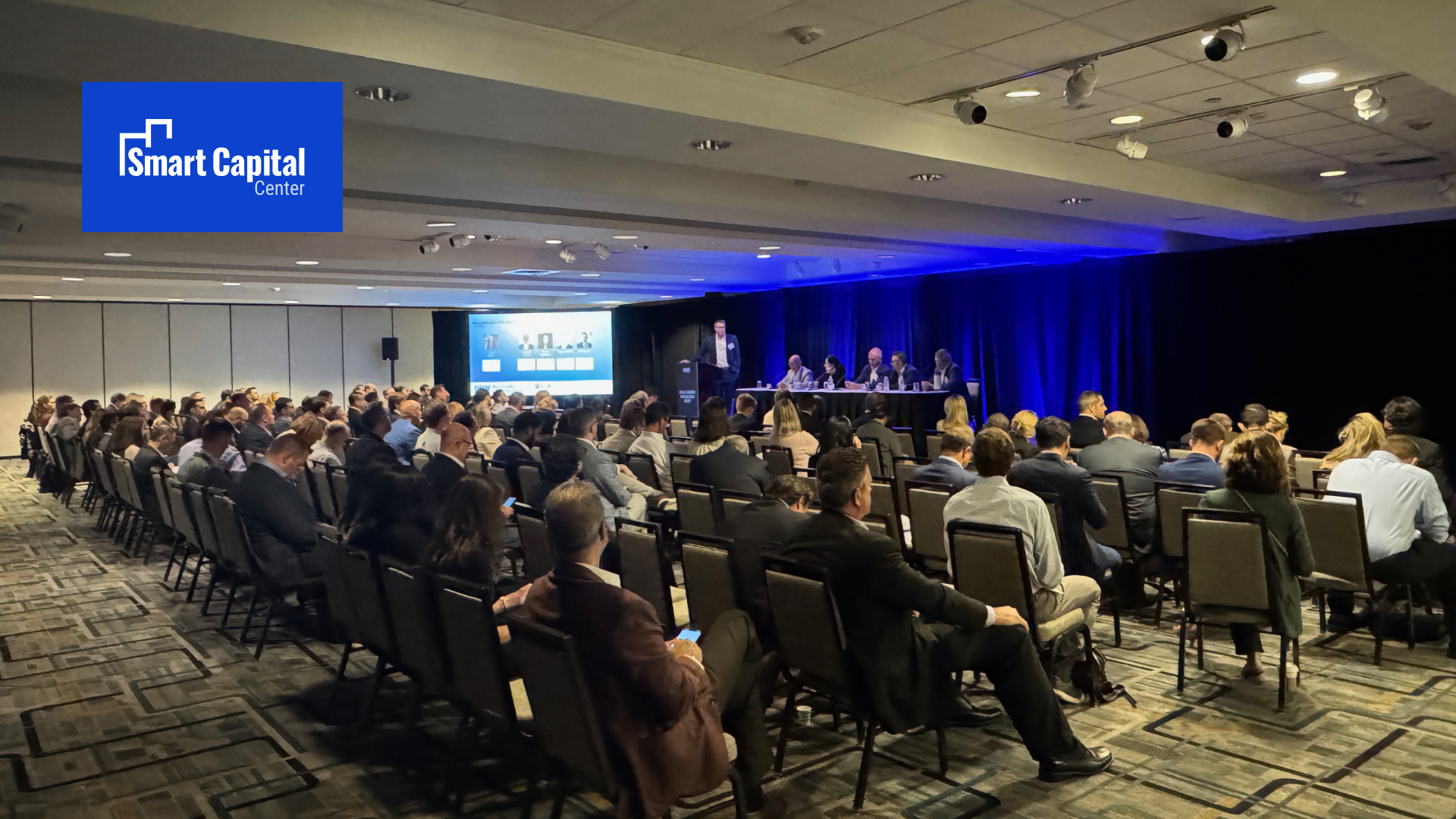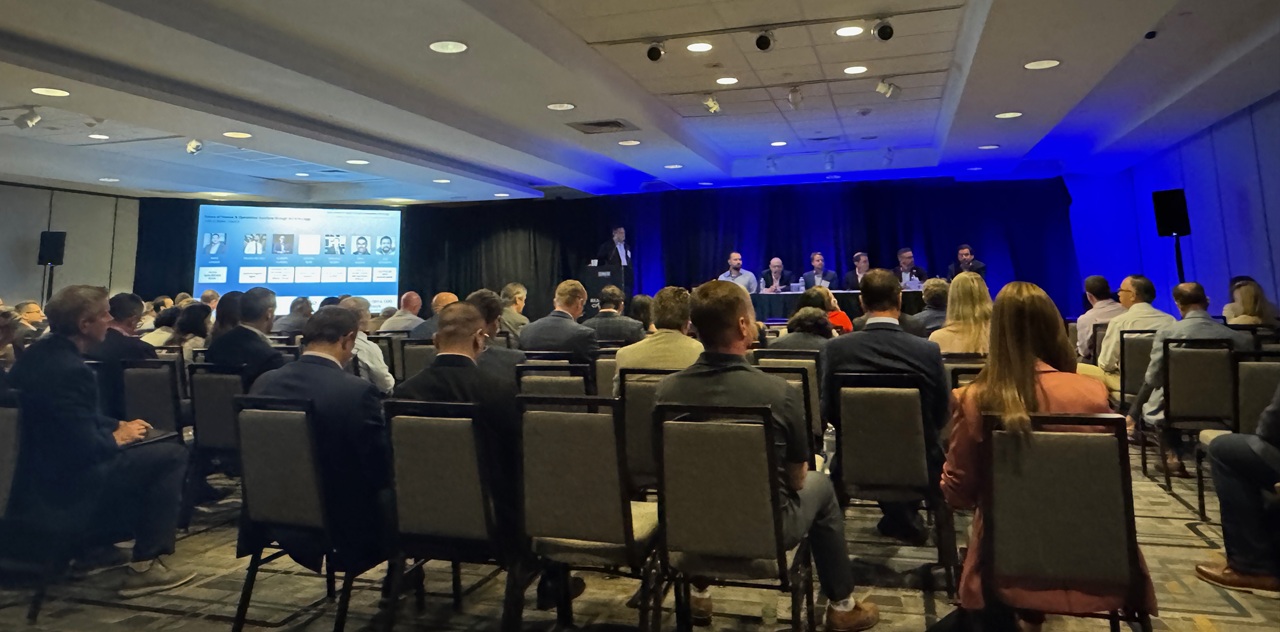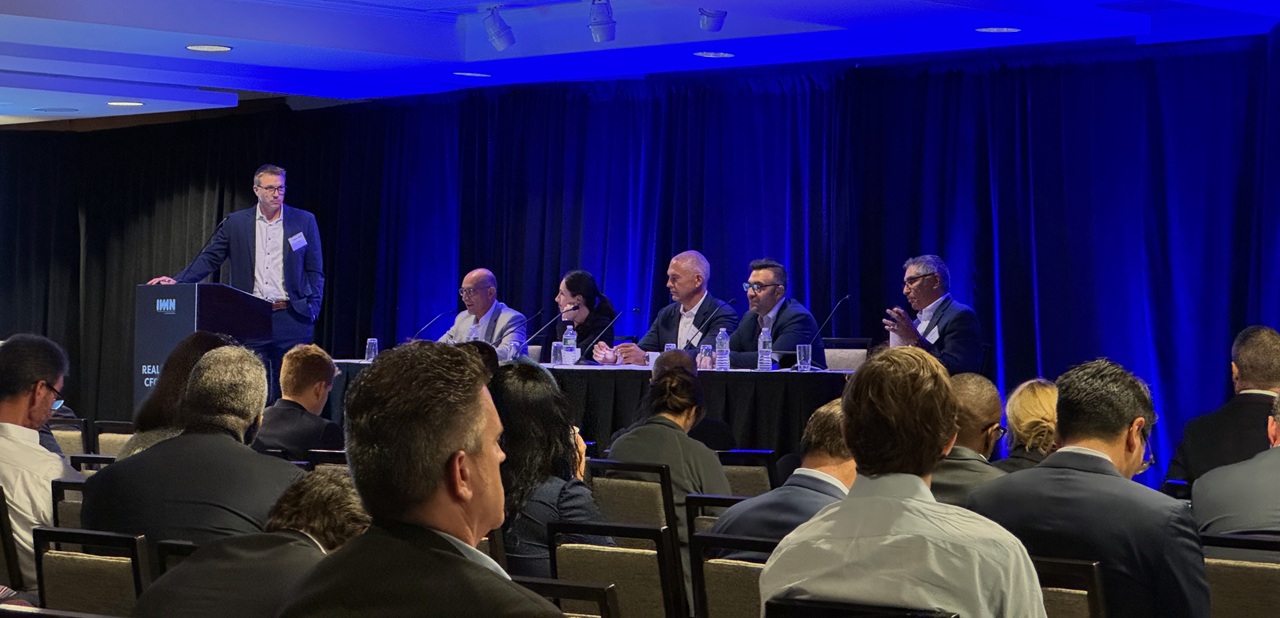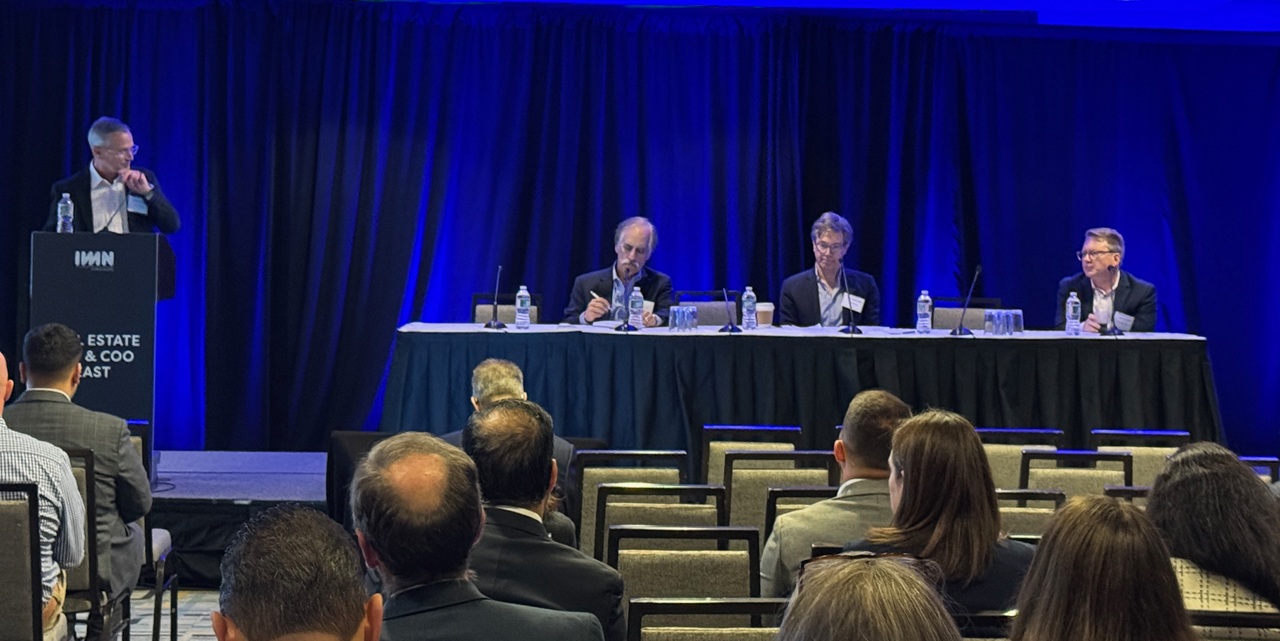Smart Capital News
December 3, 2025
Smart Capital News
December 3, 2025

This article is written for CFOs, COOs, and senior finance and operations leaders in commercial real estate. It is especially relevant for private equity firms, developers, and owner-operators seeking to improve efficiency, manage risk with confidence, and scale decision-making through AI-powered underwriting, portfolio intelligence, and automated reporting.

The IMN COO & CFO Forum brought together the decision-makers who keep commercial real estate (CRE) organizations running: the finance and operations leaders who bear responsibility for growth, efficiency, and risk management in an increasingly volatile market.
With over 30% of the audience made up of CFOs and COOs — and the remainder largely funds, owners/operators, and developers — this year’s sessions reflected a growing consensus: the future of CRE finance will be written with artificial intelligence (AI) at the center.
Across panels, one theme came up repeatedly: the need to move beyond incremental efficiencies toward structural transformation. The leaders who spoke were clear — AI-driven intelligence, automated underwriting, real-time portfolio monitoring, and decision-support tools are no longer optional. They are becoming the standard of competitive advantage.
Several executives reflected on how transaction cycles have become increasingly complex. As one put it:
“I’ve been in CRE nearly two decades, and the way deal flow is managed has barely changed. We emphasize technologically managing the transactional lifecycle for a more efficient and more agreeable future.”
For CFOs and COOs, the transaction lifecycle has traditionally been slowed by fragmented systems, siloed data, and manual reporting. Underwriting could take weeks, often relied on inconsistent inputs, and portfolio monitoring was reactive rather than predictive. These inefficiencies create bottlenecks at precisely the moments when speed and precision are most critical.
Smart Capital Center eliminates those frictions with an AI-powered platform that digitizes and connects the entire CRE investment lifecycle — from deal origination through underwriting, portfolio management, and divestiture.
Instead of managing dozens of disconnected workflows, finance leaders can rely on one integrated system that brings every stage together in real-time.
“Transaction lifecycles can feel like repeating the same process fifteen times. AI can expedite data collection, communication with investors and tenants, acquisitions, and divestitures — making CRE transactions easier, faster, and less costly.”
“AI allows us to expedite data collection, streamline communications with tenants and investors, and simplify acquisitions and divestitures. It makes transactions easier and faster.”
“We’re already using AI agents in underwriting and asset management. They generate valuations, support financing conversations, and ensure we meet criteria faster. AI helps us make decisions with greater confidence.”
During discussions on operations, one contributor put it plainly:
“We’ve used AI agents for our underwriting and asset managers by providing information, generating automated valuations, and assisting in conversations about financing. This is bringing much more confidence into decision-making.”
In other words, AI is helping financial leaders move from static, after-the-fact reporting toward live intelligence — tools that don’t just describe what happened but illuminate what is happening now.
Static, after-the-fact reporting leaves leaders reacting too late to act with confidence. Smart Capital Center delivers always-on, live intelligence by integrating 1B+ market signals and 120M+ property records into one connected platform.
For CFOs and COOs, this eliminates blind spots between reporting cycles and replaces lagging data with actionable insight at the speed of the market.

When the conversation turned to portfolio management, many agreed that stress testing is now a top priority. One executive noted: “We’re finding enormous value in stress-testing portfolios with millions of scenarios. It gives leadership visibility into downside protection and shows us five or more ways to improve our portfolio’s quality.”
“The ability to run millions of scenarios quickly is a game-changer. We can measure downside risk, build in protections, and identify ways to improve portfolio quality after a stress test. It gives leadership more clarity around risk exposure.”
“Technology is critical here. Managing the lifecycle of a portfolio requires tools that can handle the scale and complexity of today’s market. AI is what makes that future possible.”
Traditional stress testing and reporting rely on Excel models and static assumptions — far too slow for today’s volatility. Smart Capital Center replaces this with automated, AI-powered monitoring that gives CFOs and COOs a live, enterprise-wide view of portfolio health.
With Smart Capital, finance leaders move from lagging oversight to proactive intelligence through:
“The role of CRE finance leaders is shifting from reporting on what happened to anticipating what’s next — and AI is the engine making that shift possible.” – Laura Krashakova, CEO, Smart Capital Center
The result: risk management becomes risk intelligence, giving executives the clarity and confidence to act at the speed of the market.
Efficiency was another refrain that surfaced repeatedly. One executive admitted: “Efficiency is everything. If we can streamline processes, we can place more capital and do it faster. That’s the real value — reducing friction in operations so we can focus on growth.”
“By streamlining processes, we can deploy more capital and do it faster. Efficiency translates directly into growth.”
“Efficiency isn’t just about speed. It’s also about quality. By combining stress testing with efficiency improvements, we ensure capital is being deployed in ways that are resilient under different market conditions.”
Efficiency in CRE finance is about more than speed; it’s about precision and confidence in deploying capital. Smart Capital Center’s automation reduces cycle times from weeks to hours, freeing teams to focus on higher-value work.
For CFOs and COOs, this means faster deployment of capital, fewer missed opportunities, and growth at scale without increasing headcount.

From the COO perspective, the daily grind remains heavy. As one participant explained, “The data struggle is constant. Every deal requires reconciling inputs from property managers, leasing teams, lenders, and investors. The real challenge is consolidating all that into insights we can actually use.”
“Data overwhelm is the biggest challenge. Every deal involves inputs from property managers, lenders, investors, and tenants. The real struggle is consolidating all of that into actionable insights we can trust — and doing it quickly enough to drive confident decisions.”
“That’s where AI comes in. By aggregating information, generating valuations, and assisting with financing, AI provides the clarity we need to make confident decisions.”
The “data struggle” COOs described at the forum — consolidating inputs from property managers, tenants, lenders, and investors — is where Smart Capital Center provides relief
For operational leaders, this means turning hours of manual consolidation into minutes, and shifting focus from chasing data to driving strategy.

Toward the close of the forum, participants spoke about the bigger vision: “Connectivity in transaction lifecycles, tenant experiences, and investor communications is what makes organizations easier and faster to run. AI is the glue that connects it all.”
AI is more than just a tool for automating one-off tasks. It is becoming the connective tissue of CRE organizations — linking tenants to owners, assets to portfolios, and data to strategy. For CFOs and COOs tasked with running these organizations at scale, the opportunity lies in harnessing AI not as a siloed application but as an enterprise-wide intelligence layer.
AI is not just a tool for siloed tasks — it’s the connective tissue of modern CRE organizations. Smart Capital Center enables that connectivity across the enterprise:
By embedding AI and automation into every process, Smart Capital Center transforms disconnected functions into a unified, enterprise-wide intelligence network.
The IMN COO & CFO Forum confirmed what many in the industry already suspect: the CRE market is entering a new phase where AI-enabled intelligence defines competitive advantage.
As one participant summarized, “We emphasize technologically managing the transactional lifecycle for a more efficient future.” That future is already arriving, and Smart Capital Center is at the forefront of delivering it.
The CFOs and COOs who gathered at IMN came with questions about risk, efficiency, and opportunity. They left with clarity: AI is no longer an experiment — it is the path forward for CRE organizations seeking resilience and growth.
For leaders tasked with stewarding billions in assets, the choice is simple. Continue wrestling with fragmented data and reactive decision-making, or embrace AI-driven intelligence that enables faster, smarter, more confident decisions.
At Smart Capital Center, we believe the future of CRE finance will belong to those who choose the latter.